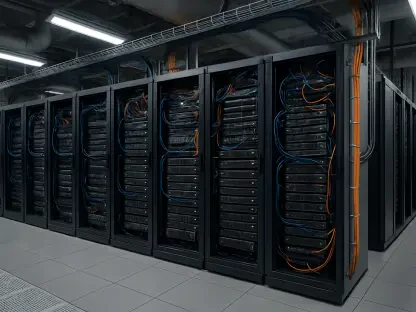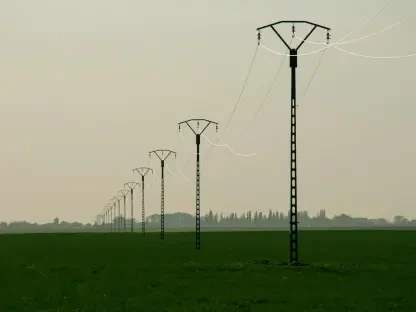In the heart of Franklin Township, southeast of Marion County in Indianapolis, a contentious proposal for a massive $1 billion Google data center on 486 acres of farmland has ignited fierce discussion among residents, policymakers, and industry stakeholders, highlighting the tension between economic growth and environmental concerns. The Indianapolis City-County Council has set a pivotal public hearing and final vote for September 22, following unanimous support from all 24 councilors to advance the proposal during a recent meeting. This development, introduced by Councilman Michael-Paul Hart, a Republican representing the area, has polarized opinions, with advocates touting financial benefits while opponents fear the loss of rural heritage and strain on local resources. As tensions mount, the debate encapsulates a broader struggle between technological progress and the preservation of local identity, setting the stage for a critical decision.
Economic Promises vs. Realities
The prospect of substantial tax revenue has been a key argument for supporters of the data center project in Franklin Township. Councilor Ron Gibson, a Democrat, has emphasized that the facility could generate an estimated $10.5 million annually in tax revenue, a stark contrast to the mere $40,000 currently collected from the farmland. This potential windfall is seen as a significant boost for local infrastructure and public services, painting a picture of economic revitalization. Proponents argue that such a development could position the area as a hub for tech innovation, potentially attracting further investments. Yet, beneath this optimistic projection lies a complex web of incentives and uncertainties that temper enthusiasm. The promise of financial gain is a powerful motivator, but it remains contingent on various factors that are still under scrutiny by both council members and the public, highlighting the need for a closer examination of the long-term benefits.
Skepticism about the economic impact runs deep among critics, including Councilman Hart, who has labeled the deal as detrimental to the community. Under Indiana law, data centers can receive tax breaks for up to 50 years, significantly reducing the anticipated revenue. Hart argues that the permanent job creation from this project pales in comparison to smaller, more community-focused developments that could offer sustainable employment without sacrificing vast tracts of land. The loss of farmland, a vital part of the township’s identity, is seen as an irreversible cost that outweighs the projected fiscal gains. Furthermore, the burden on existing infrastructure and the potential for minimal local hiring add layers of concern to the economic debate. As the community weighs these trade-offs, the discussion reveals a divide between short-term financial promises and the long-term health of Franklin Township’s economy and cultural fabric.
Environmental and Lifestyle Concerns
Environmental implications of the proposed data center have sparked alarm among Franklin Township residents, who fear the project could disrupt their quality of life. Local voices, such as Julie Goldsberry and Meredith Sharp, have raised concerns about noise pollution, potential spikes in electricity rates, and broader ecological damage. A particularly pressing issue is the immense water demand, with Google confirming that each of the four planned buildings would require 1 million gallons daily, totaling 4 million gallons per day—surpassing the usage of nearby Whitestown. For residents like Sharp, who depend on well water, the threat of groundwater depletion looms large, posing risks to access to clean drinking water. These anxieties underscore a fundamental clash between industrial needs and the preservation of natural resources, fueling opposition to the rezoning plan.
Despite assurances from Citizens Energy Group, as cited by Councilor Gibson, that water will be sourced from the White River without impacting wells, skepticism persists among locals. The utility claims a current system capacity of 256 million gallons per day, with plans to expand to 300 million, suggesting that the demand can be met sustainably. However, the sheer scale of the data center’s requirements raises doubts about the strain on local utilities and the potential for unforeseen consequences. Beyond water, the broader environmental footprint of such a facility, including energy consumption and waste management, remains a point of contention. Residents worry that their rural way of life could be irrevocably altered by industrial encroachment, transforming quiet farmland into a hub of constant activity. This tension between corporate promises and community fears forms a critical axis of the ongoing debate.
Community Resistance and Political Dynamics
Opposition to the data center has galvanized a significant portion of Franklin Township’s residents, evident in the turnout of over 60 protesters at a recent City-County Building meeting. Armed with signs proclaiming resistance, community members voiced deep concerns about the potential displacement of vulnerable individuals and the erosion of retirements tied to property values. The project is seen by many as a threat to the very fabric of their daily lives, challenging the rural tranquility they hold dear. This collective pushback reflects a broader sentiment that economic development should not come at the expense of personal security and community cohesion. As the public hearing approaches, this unified stance serves as a powerful reminder of the stakes involved for those directly affected by the rezoning decision.
Political dynamics within the Indianapolis City-County Council add another layer of complexity to the unfolding situation. While 16 of the 25 councilors currently oppose the project, Gibson suggests that opinions could shift by the time of the September 22 vote. Behind-the-scenes discussions involving Google, AES, and Indianapolis Economic Development Inc. with select councilors hint at efforts to address concerns or influence outcomes, though details remain undisclosed. Meanwhile, voices like Goldsberry express cautious hope that many councilors will ultimately align with resident priorities. Councilman Hart continues to stress the importance of sustained public engagement to ensure that community perspectives are not sidelined. This interplay of grassroots activism and political maneuvering underscores the high stakes of the upcoming decision, with the potential to reshape Franklin Township’s future.
Path Forward After Heated Discussions
Reflecting on the intense deliberations that unfolded, the debate over the Google data center in Franklin Township highlighted a community grappling with the dual forces of progress and preservation. Residents and councilors alike wrestled with the promise of economic uplift against tangible fears of environmental harm and social disruption. The significant turnout at public meetings and the passionate arguments presented by both sides demonstrated a shared commitment to the township’s well-being, even if opinions on the path forward diverged sharply. The concerns over water usage, noise, and utility strain stood as testaments to the real challenges faced by those living near the proposed site, while economic projections offered a glimmer of hope that was often overshadowed by skepticism.
Looking ahead, the resolution of this issue hinges on actionable steps that balance competing interests. The September 22 hearing provides a critical platform for further dialogue, and its outcomes will likely set a precedent for how similar projects are approached in the region. Stakeholders must prioritize transparent communication, ensuring that environmental impact assessments and mitigation plans are accessible and thoroughly vetted. Additionally, exploring alternative development models that preserve farmland while fostering economic growth could offer a compromise. As Franklin Township moves beyond this chapter, the focus should remain on fostering policies that protect both the land and the livelihoods of its people, ensuring that future innovations enhance rather than erode community foundations.









